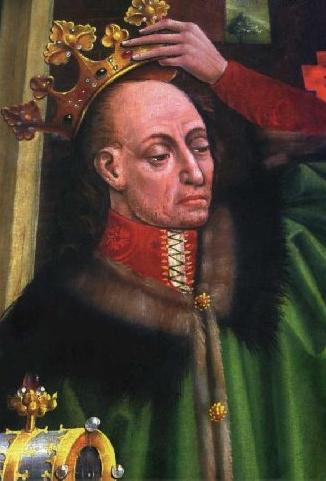
A successful freedom fighter, who freed his country from foreign oppression. A reformer who looked to control everything and pave way for the creation of an Empire.
Story in the evening ...
Story in the evening ...
https://twitter.com/Arby_K/status/1328162912989454336
Gustaf Eriksson was born in 1496 to Erik Johansson and Cecilia Månsdotter. Erik's uncle, Sten Sture (the Elder), was the Regent of Sweden, effectively the ruler of Sweden by keeping the King of the Kalmar Union (Denmark) out. 1/10 

In 1518, Gustaf would fight the invading Danish army led by King Christian II of Denmark, in support of Regent Sten Sture the Younger. Gustaf was one of the Swedish hostages sent to Christian during negotiations. The King would carry them off to Denmark instead. 2/10 

Gustaf would manage to escape in 1519 and end up in the German Free City of Lübeck. In the meantime, Sten Sture had been defeated and killed and Christian II crowned King of Sweden by Archbishop Gustaf Trolle of Uppsala, the Primate of Sweden. 3/10 

Backed by Archbishop Trolle, Christian would massacre the supporters of Sture, including Gustaf's father. Gustaf who managed to escape the bloodbath, would effectively end up as the leader of the Sture party. 4/10 

Gustaf would be able to capitalize on the anger generated among the Swedes over the massacre. With the support of Lübeck, Gustaf would be able to drive back the Danish forces, eventually becoming Regent of Sweden in 1521. 5/10 

In 1523, as Christian is deposed in Denmark and replaced by his uncle Frederik, Gustaf is elected King of Sweden. The Kalmar Union has finally ended. But Gustaf still had debtors from Lübeck and an unpopular Archbishop being blamed for a massacre to deal with. 6/10 

Gustaf would replace Trolle with Johan Månsson, but this move would be rejected by the Pope, who insisted on Trolle's reinstatement. Eventually, the King would decide to break away from Roman Church and accept Lutheran faith, Sweden becoming the first kingdom to do so. 7/10 

In 1527, Gustaf would also seize the Church's properties in the kingdom. This would go a long way in repaying Lübeck. In 1531 with the appointment of Laurentius Petri as Archbishop of Uppsala, Sweden had finally broken away from Rome. 8/10 

Few years later, Gustaf would side with Christian, cousin of his former foe, Christian II. Christian III wanted to convert Denmark to the Lutheran cause, but found the nobles against him. The war would end with Protestant victory leading to Denmark-Norway becoming Lutheran. 9/10 

It was not all smooth sailing though for King Gustaf. By the time he died in 1560, he had faced many rebellions against his regime and against his faith. But he would see through all of them paving for the Vasa dynasty that would rule in Poland, Lithuania & briefly Russia. 10/10 



• • •
Missing some Tweet in this thread? You can try to
force a refresh














